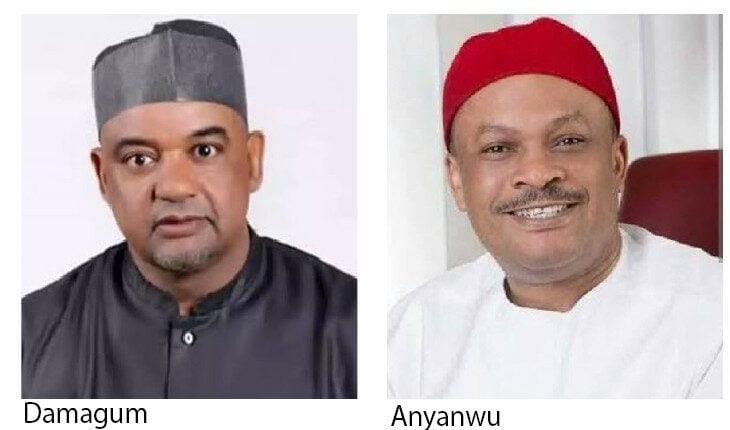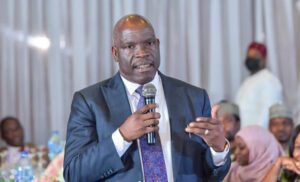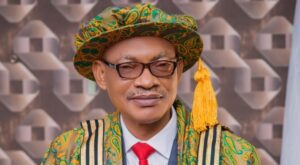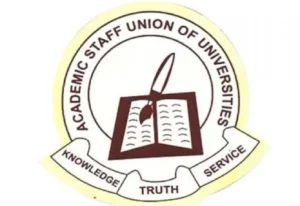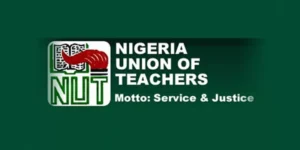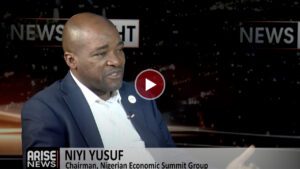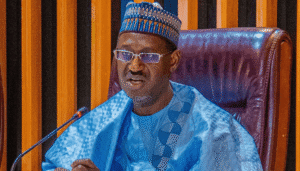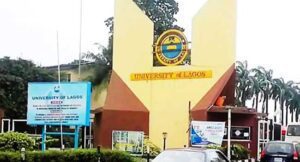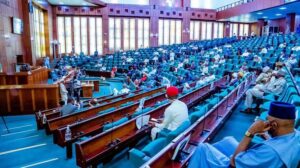“How are the mighty have fallen” was King David’s lamentation after the death of his friend Jonathan and King Saul in the battle against Philistines as recorded in the Bible. This expression could best describe the present state of the once upon powerful political party in Nigeria, the Peoples Democratic Party (PDP), which a former national chairman boasted would rule Nigeria for sixty years.
Founded in August 1998 by members of numerous groups and organisations, prominent amongst which were the G-18 and G-34, PDP asserted itself as the dominant political party in firm control of machinery of government from the federal, most states, national and state legislatures as well as local government councils.
Formerly described as the largest party in Africa, PDP won the 1999, 2003, 2007 and 2011 presidential elections, majority of seats in the National Assembly and took the highest number of governorship slots in the country.
Between 1999 and 2015, PDP produced three presidents namely, Olusegun Obasanjo (1999-2007), Umaru Yar’Adua (2007-2010) and Goodluck Jonathan (2010-2015).
Available statistics showed that during the 1999 general election which heralded the return of democratic rule in the country, PDP won 21 governorships seats, the number increased to 27 at the 2003 polls and by 2007 the then ruling was in control of 28 states but the number declined to 23 in 2011.
The trend indicated that from 1999 to 2007, some opposition governors joined PDP, swelling the number from 21 to 28. However, the number started declining in 2011 as it stood at 23.
Hay days…
In its hay days, PDP enjoyed all paraphernalia of state apparatus as the party was holding its caucus meetings and other gatherings in the comfortable ambience of the presidential villa and state government houses.
In those good old days, PDP became a beautiful political bride courted by all political suitors which might be the reason for defection of opposition politicians into its fold as securing the party’s ticket was as good as winning the main election already. The national secretariat of the party was a political fortress of sorts.
2015 happened…
As a precipice to what would come, the number of PDP governors dropped drastically to 13 in 2015, leaving the newly registered All Progressives Congress (APC), a merger of opposition parties and part of the ruling party, with 23 governors.
But signs of major trouble for PDP emerged after the demise of President Umar Musa Yar’Adua in 2009. The North wanted power to remain in the region after Olusegun Obasanjo’s eight of southerner presidency.
Following interventions and agitations, the then vice president and later acting president, Goodluck Jonathan, was able to win the 2011 election, upon an alleged premise that he would serve one term.
Still, Jonathan’s 2011 election victory resulted in protests and killings in the North.
By the turn of the 2015 election, the party had approached a breaking point as the hard line politics of its leaders, in the wake of a coalition merger, became a major undoing.
Against the backdrop of an agitation for power shift to the North within the party, the refusal of the President Jonathan to hand over power saw a defection of five PDP governors and some leaders to the APC.
That year, the governors of Kano (Musa Kwankwaso); Adamawa (Murtala Nyako); Kwara (Abdulfatai); Sokoto (Aliyu Wamakko); Rivers (Rotimi Amaechi), left the party earlier over a feud with then President Goodluck Jonathan and his wife, Patience.
They fused with the APC as n-PDP, resulting in PDP defeat in 2015. Also, most northern PDP leaders didn’t work for the party’s success in 2015 as the agitation for a Northern presidency had become too strong. This helped the late President Muhammadu Buhari of the APC to win the presidential election.
After the 2015 election, the party suffered a bitter legal tussle for its leadership between camps led by Senator Ahmed Makarfi, who was backed by the governors and party leaders, on the one hand, and Senator Ali Modu Sheriff, who was accused of being backed by the Buhari-led administration.
After almost two years of legal tussle, the Makarfi camp won, conducted a national convention which handed over leadership to the Prince Uche Secondus-led National Working Committee, which stabilise the party for the better part of four years that he was in power at Wadata Plaza. For analysts, this period was the calmest the PDP has had as an opposition party.
Although the PDP made amends in 2019 by zoning the presidency to the North, and former vice President Atiku Abubakar flew its ticket, it couldn’t stop Buhari’s return for a second term.
However, at the close of 2019 general election, PDP won additional five governorship positions in Adamawa, Bauchi, Oyo and Zamfara States as well as Benue while it lost in Gombe and Kwara States.
2023 like 2015
In 2023, the zoning debate returned to PDP. This time it was about the power shift to the South, a position opposed by the Northern stakeholders who insisted that the region was yet to get its turn under the party’s banner.
While the conflicting views saw the party abandoning zoning and throwing the ticket open, the emergence of Atiku as the party’s candidate opened a fresh scrimmage.
A group of 5 PDP governors, namely Seyi Makinde (Oyo), Samuel Ortom (Benue), Okezie Ikpeazu (Abia), Wike (Rivers) and Ifeanyi Ugwuanyi (Enugu), worked against Atiku in the election because the candidate refused to accede to some of their demands.
After their move for Wike to be Atiku’s running mate failed, Atiku also didn’t yield to their request for the then national chairman, Dr Iyorchia Ayu (a Northerner) to relinquish the office for a southerner since the party’s candidate was from the north.
Before then, Atiku’s running mate in 2019, Peter Obi, had dumped the party ahead of the primaries and emerged the Labour Party presidential candidate. Similarly, former Kano State governor, Rabiu Kwamkwaso, also defected from the PDP and became the presidential candidate of the newly registered New Nigeria Peoples Party (NNPP).
Eventually, Obi (taking away massive South East Votes) and Kwankwaso’s split, coupled with the refusal of the five PDP governors to work for Atiku, led to the failure of the PDP against APC’s Bola Ahmed Tinubu in the presidential election.
Interestingly, while Tinubu, Atiku and Obi won the same number of states, the APC candidate won more votes.
Post 2023
The crisis within PDP has not ceased even after the 2023 election.
The battle for the party’s soul pitted the Wike-led camp against Atiku group and later the camp of PDP governors, resulting in mass exodus from the party.
From the battle for the soul of Rivers State PDP, to struggle for the chairmanship seat, states congresses and the national secretary position, the party has barely had respite after the 2023 election.
Eventually, top PDP leaders, including Atiku, former Senate President David Mark, dumped the party for the African Democratic Congress (ADC).
At present, PDP has eight governors with the recent defection of Peter Mbah of Enugu state to APC and resignation of Douye Diri of Bayelsa state who has also joined the ruling APC. Before then, governors of Delta and Akwa Ibom, Sheriff Oborewori and Umo Eno respectively, had dumped the party.
As the number of PDP governors are decreasing, so are the numbers of its members at the National Assembly.
From 2023 to date PDP has been hit by gale of defections, including four governors and two deputy governors- Umo Eno of Akwa Ibom state, Sheriff Oborevwori of Delta State, Mbah of Enugu, Douye Diri of Bayelsa State as well as Philip Shaibu, the immediate last deputy governor of Edo state with many federal lawmakers.
About 50 PDP federal lawmakers have dumped the party for APC, including Senators Ned Nwoko(Delta), Ekong Samson (Akwa Ibom South), Etim Bassey (Akwa Ibom North East), Francis Fadahunsi (Osun East), Olubiyi Fadeyi (Osun Central), Adamu Aliero, Yahaya Abdullahi, Garba Maidoki – all from Kebbi state.
In the House of Representatives, some PDP lawmakers who joined APC are: Hons Chris Nkwonta (Abia), Suleiman Abubakar Gumi,Erhriatake Ibori-Suenu (Delta), Oluwole Oke(Osun), Hussein Jallo( Kaduna), Adamu Tanko(Niger), Victor Nwokolo (Delat), Julius Pondi (Delta), Thomas Ereyitomi (Delta), Nicholas Mutu (Delta), Hon. Ukodhiko Jonathan (Delta),Hon. Ezechi Nnamdi (Delta), Idem Uyime(Akwa Ibom) Esin Etim(Akwa Ibom), Paul Ekpo(Akwa Ibom), Uduak Odudoh(Akwa Ibom) Okon Bassey(Akwa Ibom) and Etteh Ikpong (Akwa Ibom).
Others include: Hons. Ajilesoro Taofeek Abimbola(Osun), Hon. Omirin Olusanya(Osun),Marcus Onobu(Edo), Abdulkarim Ahmed, Aliyu Abdullahi, Sadiq Abdullahi – all from Kaduna, Ojema Ojotu(Benue) and the latest defectors from Enugu; Hons Chidi Obetta, Anayo Onwuegbu, Dennis Agbo, Martins George and Nnaji Nnolim. The party has also suffered massive defection of its lawmakers from Enugu, Bayelsa and other states.
Most of these defectors, especially lawmakers cite “irreconcilable differences”, internal divisions and crisis within their former party, the PDP as reasons for their defections to the APC.
Just as these defectors claimed, political observers blamed the degenerative status of PDP on crises, internal divisions, conflict of interest and selfish ambitions of some leaders as well as members, particularly those seeking tickets for elections.
Also worrisome is the fact that many founding leaders of the party who held exalted offices have either deserted the party or no longer showing interest in its affairs.
For instance, former President Obasanjo tore his PDP membership card ahead of the 2015 polls, ex-President Jonathan and his deputy Namadi Sambo, have not been identifying with the party as well.
Its hitherto most sought after tickets, seems not to attract many as evident in Saturday’s Anambra governorship election in which only one aspirant picked forms to be its candidate in the polls.
The party’s troubled national chairman, Umar Damagum, admitted this recently when he declared that the problems of the party are self-inflicted.
Damagum who spoke at a meeting summoned by the party’s founding fathers and stakeholders, said “We must confront the hard truth, much of the injury the PDP has suffered has been self-inflicted.
“From the Obasanjo era to this moment, we have too often jettisoned ideology in favour of personal ambition. This has cost us dearly.”
A former Jigawa State governor and one of the founding fathers of the party, Alhaji Sule Lamido equally shared this view as he had said PDP’s problem is self-inflicted.
Lamido, who recently spoke with the BBC Hausa, stated that he would work for the victory of ADC in 2027 while retaining his PDP membership.
The former minister said he would operate within the party like Wike, who is in PDP but busy working for the APC, noting that while politics in Nigeria does not support factionalism, he will look for a right candidate to support not just a political party.
While some political observers may conclude that it is over for the PDP which prophesied that it will lead the country for 60 years but could not go beyond 16 years, the party leaders are upbeat that the November 15-16, 2025 national convention holding in Ibadan, Oyo state will restore its lost glory.
Chairman of the PDP Governors’ Forum, Bala Mohammed enthused at the 101th National Executive Committee meeting of the party that “a transparent and a successful national convention will help heal this self-inflicted wound. We would be taken serious as a party when we conduct a transparent and successful national convention. This would be a game changer for us.
‘’This is a long way we have travelled. This is how PDP is known, a party with a history, with a logo that has not changed over the years. The party that has shown resilience, and we have the governors solidly behind all the organs of the party. We don’t have to make a lot of noise.
“We are working behind the scene, behind the NWC, behind the BoT, the caucuses of the National Assembly and the six chapters to ensure that we remain intact and provide a credible platform for Nigerians to actualise their aspirations.”
However, there are indications that the convention will not be without crisis.
For instance, PDP federal lawmakers from the South East, have threatened to boycott the party’s national convention if the woman leader position which was originally zoned to Imo State, is hijacked by Governor Makinde of Oyo State for South-south.
The lawmakers, led by member of the House of Representatives, Hon. Ikenga Ugochinyere (PDP, Imo) in a statement issued Sunday, said they would issue a disclaimer against the convention in two weeks and would not participate if South East is humiliated by those who want to rubbish an entire region.
“We don’t want to see PDP suffer more setbacks. Still, we will stick to our position on the Ibadan convention if, in the next few weeks, the position of national woman leader is not ceded expressly to Imo State.
“They want to provoke the entire South-east and alienate them. Because of that, stakeholders from the South-east, led by the federal lawmakers, are now threatening to boycott the Ibadan convention if the position of woman leader is not ceded to Imo State and the South-east is allowed to produce the national woman leader,” the statement reads.
CSOs, Scholars, Politicians Speak
Lead Advocate, Citizens for Democracy and Change Agenda, Sylvanus Udoenoh, attributed the present state of the party to internal conflicts, weak leadership, defections and poaching by APC as well as lack of public trust.
In an interview with LEADERSHIP Weekend, Udoenoh, a former local government chairmanship aspirant in Akwa Ibom state, said the party has suffered protracted leadership crises, including multiple claims to national secretary posts and divisions between governors, national organs and regional blocs.
According to him, APC has been very aggressive in attracting PDP members, especially as APC holds power at the federal level; defections tend to create a momentum effect, undermining internal morale and organisational coherence.
The civil society leader noted PDP has come to symbolise the status quo, patronage politics, and unmet expectations of delivery, saying when citizens feel that being in the party no longer guarantees influence or results, the incentive to stay weakens.
“The PDP has struggled to reinvent itself, respond to younger voters, digital mobilisation, and develop a refreshed mission beyond “we ruled before.” It seems the party is stuck with its past rather than leading toward the future.
“The blame cannot be placed on one individual or one event. It is structural and cumulative: leadership failures, organisational decay, talent drain, and changing political ecosystem.
“When PDP emerged in 1998 and then dominated the Nigeria political space from 1999 to 2015, it held nearly every major office in Nigeria: the presidency, a majority of governors, senate and house majorities, and strong control of state assemblies.
“The party’s mantra of ‘60 years in power’ reflected its ambition to be the guarantor of Nigeria’s democratic journey. Unfortunately, that ambition was cut short before it could get to their members.
However, by the time of the 2023 presidential and legislative elections, the PDP had already been weakened by internal divisions, defections and loss of public trust.”
Udoenoh noted that PDP can be rise again only if there is clear leadership mandate, return to core values and public articulation, concerted efforts to retain remaining governors and lawmakers as well as stronger grassroots mobilisation.
He urged the party to leverage the Ibadan convention strategically; not just as a ritual but as a launch pad for renewal, to adopt reforms in party constitution, strengthen national and zonal organs, set timelines for state chapter revitalisation where genuine leadership comes in.
“Can the bone rise again? My answer is an emphatic Yes — the PDP can rise again — but, it will require deliberate, painful reform. The planned, or should I say upcoming national convention in Ibadan (Oyo State) offers a potential inflection point.
“PDP must present an issue-based agenda — not just opposition for its own sake. This means developing policies attractive to younger Nigerians, reforming the party structure to promote transparency and internal democracy.
“As a final Verdict on whether this is the end of PDP. I’d say it would be premature to declare the “end” of the PDP — but it is absolutely accurate to say that without significant change, the party risks becoming a permanent second-tier opposition without real leverage. Of course, the “bone” can rise, but resurgence is far from guaranteed.
“The upcoming convention is a critical juncture, a major opportunity for revival: if it fails to address leadership, organisational reform and public relevance, the party’s decline will accelerate,” he added.
A lecturer in the department of political science, Nnamdi Azikiwe University, Awka, Anambra state, Dr Christian Okeke, likened PDP to a beautiful bride that threw herself into a mud to the chagrin of applauders.
He told LEADERSHIP Sunday that what happened to the party is a kind of price for injustice, saying its misfortune is a big lesson on party politics in the country.
“It is a caution against arrogance, insensitivity, personal interest, egoism, sectionalism, injustice, and of course indiscipline. It is a lesson that fortunes can be lost irretrievably.
“Whenever and wherever truth and humanism are buried, the fruit is what has befallen the party.
When elders and those who should rise to the occasion fail to make hay while the sun shines, the outcome is often what you see in today’s PDP,” Okeke said.
The scholar noted that the worst thing against the party is the action and double-standards of some members who seem to have vowed not to forgive injustice and personal loss suffered by them, and had, perhaps, vowed to tear the party down.
He said, “in fact, what happens to the party is a microcosm of what is happening to the country.
‘‘How can there be progress and peace in the party when you have already started to hear about not selling forms to a chairmanship aspirant?”
The political scientist opined that the redemption of the party is not absolutely impossible but still far off, regardless of the forthcoming convention.
Okeke said: “Ibadan national convention may hold but it has already started looking like it will throw up more challenges for the party in terms of its national leadership.
“Most politicians in this part of the world are shameless and unrepentant instruments of retrogression who do not value any form of reformation for sake of national interest. The seeming impossibility to eventually resolve her national leadership debacle will keep rolling back any efforts to bring about genuine reconciliation and healing in the PDP.
“It seems like many politicians still hanging on will face ultimate frustration by 2026 and their eventual exit may finally nail the party. What do you make of a party that people are afraid to go into and contest election under its platform just because even their eventual electoral victory can be snatched from them on the altar of having been sponsored by an illegal leadership?”
To a lecturer in the Political Science Department, Federal University of Kashere, Gombe State, Dr Terna Vincent Tavershima, the PDP is still much alive and only the 2027 general election will determine whether the it is still alive or not.
He said the defection of the party’s governors, lawmakers and top notch to APC is akin to what happened to PDP when it was the ruling party and it eventually led to implosion which impending in APC.
The political scientist averred that the governors and lawmakers defecting from PDP and other parties to APC are doing so because lack of clear party ideology as obtained in advance democracies.
“I will like to stay that the PDP is still very much alive to the extent that the party leaders, let’s say governors, Senators want it to be.’’
To a lecturer in the Political Science Department, Federal University of Kashere, Gombe State, Dr Terna Vincent Tavershima, only the 2027 general election will determine whether the party it is still alive or not.
He said the defection of the party’s governors, lawmakers and top notch to APC is akin to what happened to PDP when it was the ruling party and it eventually led to implosion which he said is also impending in the APC.
“I will like to stay that the PDP is still very much alive to the extent that the party leaders, let’s say governors, Senators or House of Representatives members that are moving from PDP to APC, most of them were told that the people have not moved with them.
“Well, only the 2027 general election will tell whether the PDP is still alive or not. The same scenario that took place when the PDP was in power and many political parties were defecting into it to become relevance in the polity or to win party nomination and eventually win elections, that same scenario is playing out in the APC today.
“There was implosion in the PDP and you see what the party has become. The same scenario will happen to the APC because most of the people coming into the APC from the PDP or Labour Party are coming there to also slug it out with members that were there before. To that extent, I want to believe that there is going to be an implosion in the APC.
It is only the 2027 general election that will tell whether PDP will rise again or not.
“Again I want to state that because we don’t have political ideology, we continue to see politicians jumping from one party to another. The arguments they make while joining another political party are not ideological. You just imagine governors moving from the PDP to the APC and saying they want to do national politics. What do you mean by that? What is national politics, don’t you get your federal allocations?
“In the United States of America, even though people cross carpet from the Democrat to the Republican or from Republican to the Democrat, it is not as astonishing and as glaring as it is here. It is Just because they don’t have a sharp political ideology.
“You know here, whether you are PDP or APC or Labour Party everybody is talking about building roads, everybody is talking about fighting insecurity and building health centres. There is no clear-cut policy on how to do. That is the difference in party ideology.
“If you go to America or Britain, in Britain for instance, you will see Labour Party saying they will cut taxes, Conservative saying they will increase taxes, widened the net to see how they will be able to run the society. Here nobody is talking about that, everybody is talking about health, education, insecurity, the roads etc. but the how is where the ideology lies,” he added.
An APC chieftain from Delta state, Ayiri Emami, does not see the PDP rising again, declaring that its death would rather reduce the stress of facing opposition for him.
He said: “I’m not a member of the PDP so sometimes I don’t like poke-nosing, I will like to concentrate on my own party. If the former ruling party is going down, it is to my advantage. If I have a way to ensure that PDP dies so that I will have less stress, I will do it. I pray that the PDP doesn’t get revived.”
His prayer may have been answered following the cacophony of voices coming from those saddling with the responsibilities of organising the Ibadan convention and the party’s leadership.
The severity of the crisis in the PDP came to the fore as it prepared for its elective national convention in Ibadan, Oyo State, on November 15.
The convention is intended to elect new national party leaders to take over the reins of power, a process that would likely reset the balance of power within the party’s leadership between PDP governors and the camp loyal to the Federal Capital Territory (FCT) minister, Nyesom Wike. While the PDP governors prepared for the exercise, the Wike camp, which had pledged support for APC’s President Bola Tinubu’s bid for a second term, moved against the process.
However, the grievance of the group was about the handling of state congresses by the Damagum-led PDP. The Wike group, through some state party chairmen, went to an Abuja court to stop the convention, and the national secretary, Samuel Anyanwu, Wike’s ally, claimed that his signature was forged on the letter notifying INEC of the Ibadan convention. Although the Damagum-led NWC and the party’s BoT denied the forgery claim, the Abuja court halted the convention. This prompted a suspension spree within the NWC, as Damagum and some national leaders suspended Anyanwu and some other national leaders.
In a swift reaction, Anyanwu and some of his allies in the National Working Committee imposed a counter-suspension on Damagum and members of the national leadership.
While an Oyo State court subsequently upheld the convening of the convention, the damage had been done as the split within the party’s ranks continued, with the Wike group creating its own BoT, led by Senator Mao Ohuabunwa.


